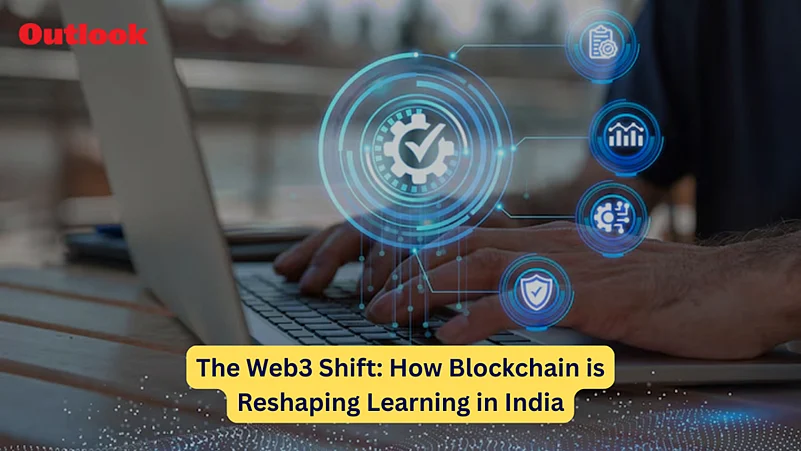From traditional classroom settings to digital learning platforms, technology has played a key role in making education more accessible. But a new wave of innovation is beginning to reshape learning in a more fundamental way. This shift is being led by Web3 and blockchain technologies, which promise to redefine how education is delivered, recorded, and accessed in the country.
Web3, otherwise referred to as the decentralized internet, is based on blockchain technology. Compared to Web2 platforms where data is held by central parties, Web3 enables users to own their data, enjoy privacy, and engage directly with each other. In the education sector, this could make learning transparent, accessible, and safe for students, teachers, and institutions.
Decentralization and Trust in Credentials
One of the largest problems of the present Indian education system is the authentication of degrees and diplomas. Illegitimate degrees and forged documents are a common phenomenon, and this means there is lower trust in academic accomplishments. Blockchain provides a solution by producing tamper-evident digital records that can be authenticated in real-time. Academic accomplishments, once on a blockchain, cannot be changed or replicated, providing the much-needed trust and legitimacy to student credentials.
This also implies that students will no longer have to hold papers in their hands or wait for institutions to authenticate their records. These records may be verified in real-time by employers or other academic institutions through the blockchain, cutting down delays and fraud.
Giving Students Ownership
In a typical education system, student records, marksheets, and certificates are held and managed by institutions. Web3 alters this as it places data ownership in the hands of students. With blockchain, students can maintain a self-sovereign identity, where they determine who views their academic data. This makes students powerful, as they can now share their authenticated achievements with universities, employers, or scholarship bodies, without relying on any middleman.
This change is particularly beneficial in India, where students switch between states or nations for education or employment. A decentralized system of records keeps their studies on track and transferable wherever they go.
Making Learning More Inclusive and Accessible
India is a populous country with diverse inhabitants, and the quality of education is a problem in most rural or far-flung locations. Physical infrastructure does not constrain Web3-learning platforms. The platforms are capable of delivering learning modules, digital degrees, and peer-to-peer tutoring, and even all these are blockchain-verified. This provides a platform for the learners from the poor communities to obtain the same quality of education and degree as students from cities.
Besides, blockchain will lower the cost of learning by eliminating intermediaries. Administrative processes or conventional bodies of certification tend to increase the price and the complexity. Blockchain simplifies and cheapens the issuance and verification of credentials.
Incentivizing Learning Through Smart Contracts
Yet another fascinating application of blockchain in education is the utilization of smart contracts바카라Ēprograms that automatically execute themselves if certain criteria are fulfilled. In education, smart contracts can be utilized to automate scholarships, award tokens for course completion, or motivate students to reach learning milestones. These rewards could eventually be spent on educational materials or additional training.
For example, a learner finishing a certified online course may receive automatically a blockchain-verified certificate and even an automated micro-scholarship token, without human intervention. This minimizes administrative hassle and enhances trust in the certification process.
Facilitating Lifelong Learning and Skills Acquisition
The Indian education system has traditionally been based predominantly on early-life education바카라Ēschooling and degree from a university. Yet, the present-day job market requires ongoing learning and upgrading of skills. Web3 facilitates developing decentralized learning environments through which people of all ages can accumulate a lifetime record of skills, courses, and accomplishments.
Blockchain technology ensures such records are safe and tamper-proof. Employers can use it to evaluate a candidate's overall learning experience, from micro-courses to online courses, and skill-based certifications rather than traditional degrees. This encourages continuous learning and personal development.
The Road Ahead
While blockchain and Web3 technologies are in their nascent stages in India's education industry, there are robust indications of adoption. A number of EdTech startups and schools are examining the application of blockchain for the issuance of digital certificates and the maintenance of learning records. Government campaigns like Digital India have also laid the groundwork for digital transformation, and blockchain is likely to be the next step in this process.
Yet problems persist. There is a necessity for transparent rules, digital infrastructure in remote locations, and awareness between institutions and students for the educational benefits of blockchain. Guaranteeing data privacy, avoiding abuse, and incorporating these technologies into current frameworks will also take careful planning.
Nevertheless, the potential is certain. Web3 and blockchain aren't technologically mumbo-jumbo바카라Ēthese are real technologies that can actually fix long-standing problems in the Indian education system. By making learning more accessible, authentic, and student-led, these technologies can assist in creating a future where education is actually democratic and inclusive.
As India increasingly accepts digital innovation, the trend towards Web3 in education might be among the most significant developments we witness over the next few years.














